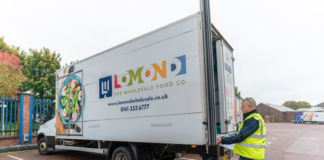Paul Hill looks into the recent developments coming out of the buying groups sector
The news that 20 Confex members are to leave and form a new collective is the second major story coming out of the buying groups sector in less than four months, following the news that Fairway was to move away from Unitas in order to give its members a better foodservice offering.
These two developments form part of a wider theme across the wholesale industry in which there is not only a wealth of consolidation, but also an evolution, as buying groups develop and expand what they can offer their members.
From Confex’s perspective, it leaves the Cotswolds-based company in a similar position to where it was at the start of the year, after recruiting 19 new members in 2019.
“The 20 members that have left will run their notice period (either the end of June or six months) according to their individual Confex contracts,” says business development director Tom Gittins.
Now in its 47th year of trading and on course for a projected growth of 40% from 2013 to 2022, Confex is still set up well for the future. “Our three-year growth plan includes opportunities stemming from Brexit, NPD with suppliers, as well as membership diversification,” adds Gittins.
Industry expert David Gilroy is a keen observer of the news and believes buying groups now have four key areas upon which to focus on, rather than the traditional three, if they are to make use of the collective strength of their membership.
“As well as enabling their members to be more competitive, profitable and improving their offering, they now also need to enable their members to keep pace with a fast-changing market and world,” he explains. “Areas that were trends only months ago are now fast becoming mainstream.”
Gilroy adds: “Consumers will be demanding positive demonstrable action in areas such as food waste management reduction, plastic packaging reduction, DRS systems, energy reduction and renewables, as well as credible and decent-quality own-label ranges.”
Meanwhile, Nick Redford, the managing director of Caterforce, explains how his buying group is future-proofing itself in order to deal with these aforementioned trends. “A priority for us is the extension of our buying policies,” he says.
“We’re making a number of significant changes which will affect labelling, ingredients, animal welfare, plastic and palm oil.
“The updates will be made in close partnership with our members to ensure the changes are sustainable.”
The news came as a surprise for Neil Turton, managing director of Sugro. “The industry probably needs fewer buying groups, rather than more.
“But for one to be effective these days, it’s about the execution and selling, as much as buying aggregation,” he explains. “That’s the big test of any group – what value do they add and how much simpler do they make the route to market?”
Turton also believes that buying groups now need to set themselves high standards in simplifying route to market. “This not only helps suppliers, but also delivers financial benefits to members,” he says. “Just existing isn’t enough.”








